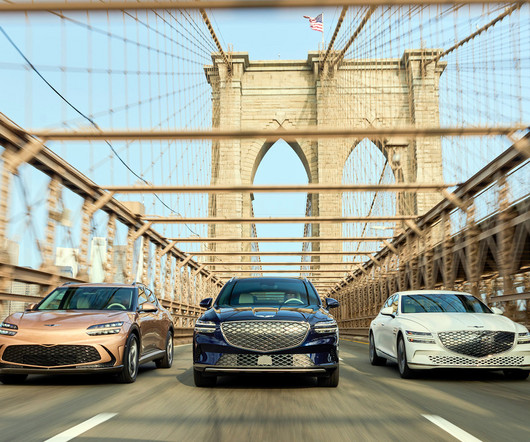UPS updates 125 Workhorse E-GEN series hybrid electric step vans with smaller genset engine for better fuel economy
Green Car Congress
MAY 3, 2016
UPS announced an update to 125 Workhorse E-GEN series hybrid electric delivery trucks that improve fuel economy as part of the company’s broader Rolling Laboratory approach. 4-cylinder engine; charging capability remains the same, as does the electric range. The small ICE could be outfitted for gasoline, propane, or CNG.












Let's personalize your content